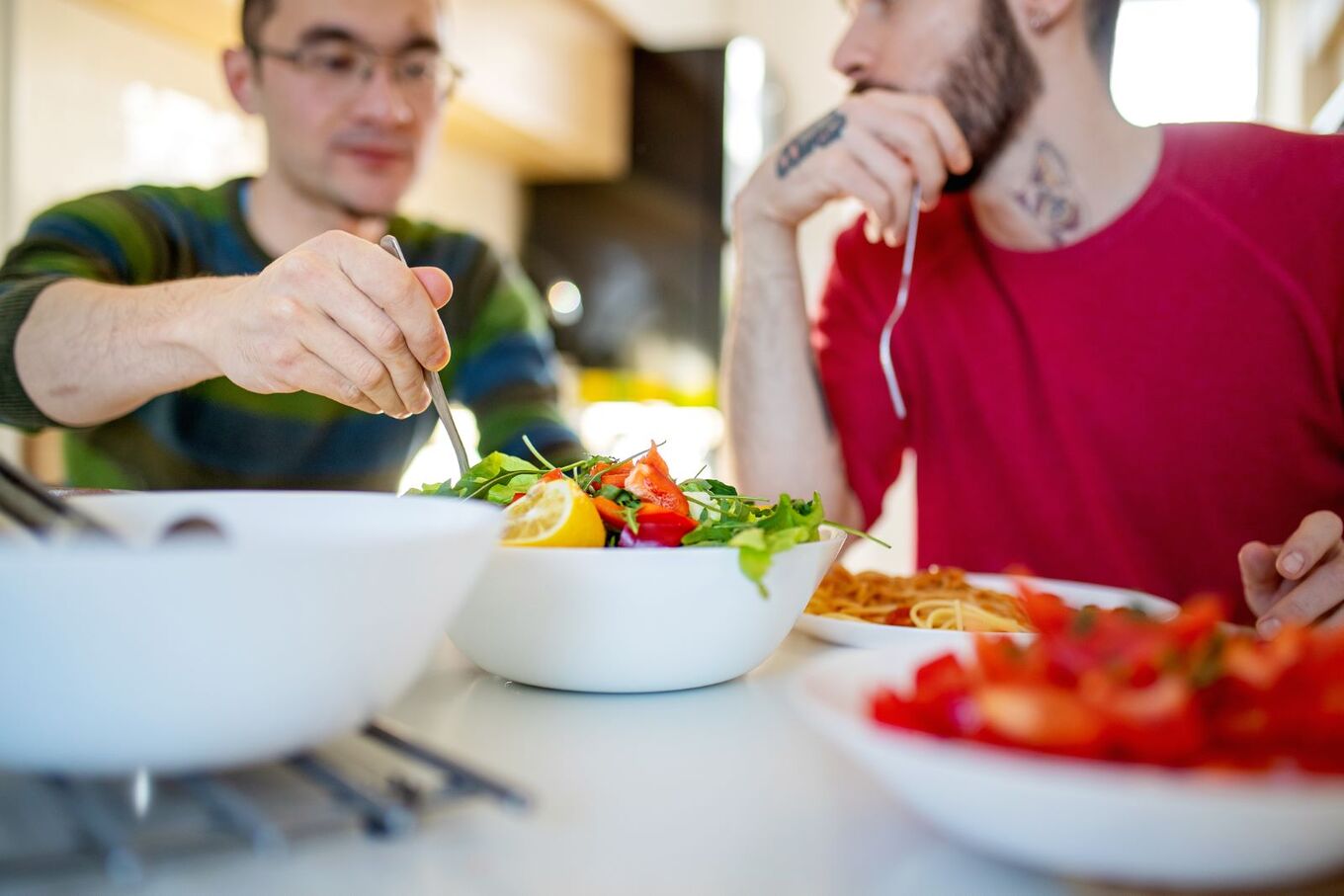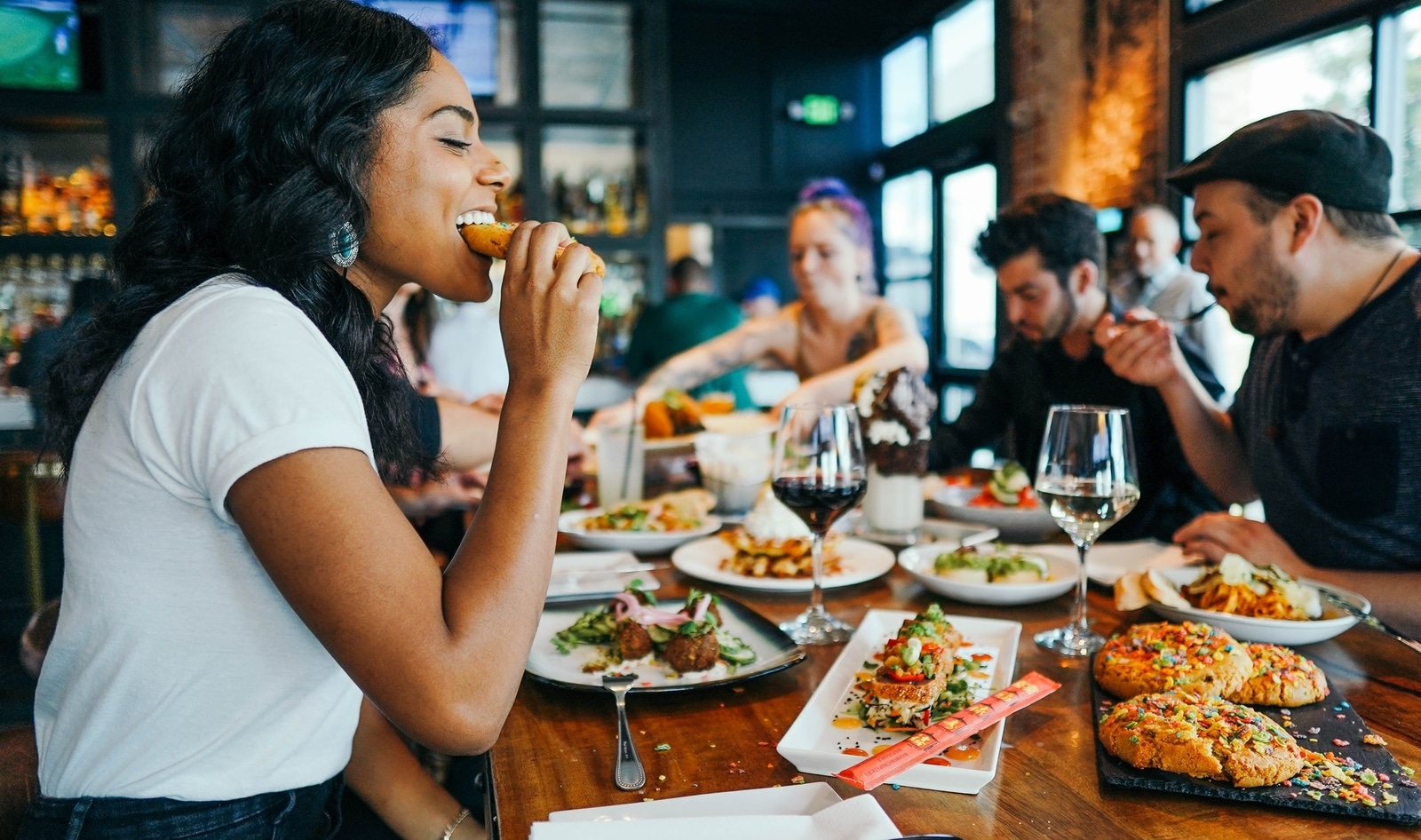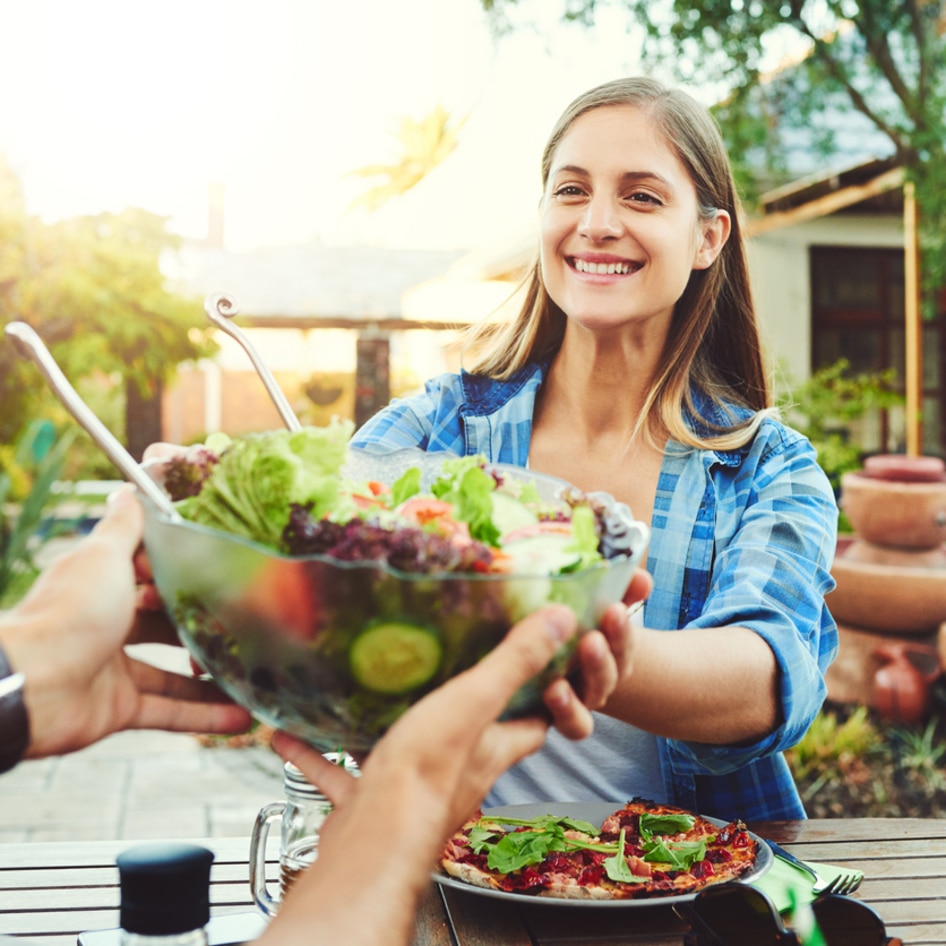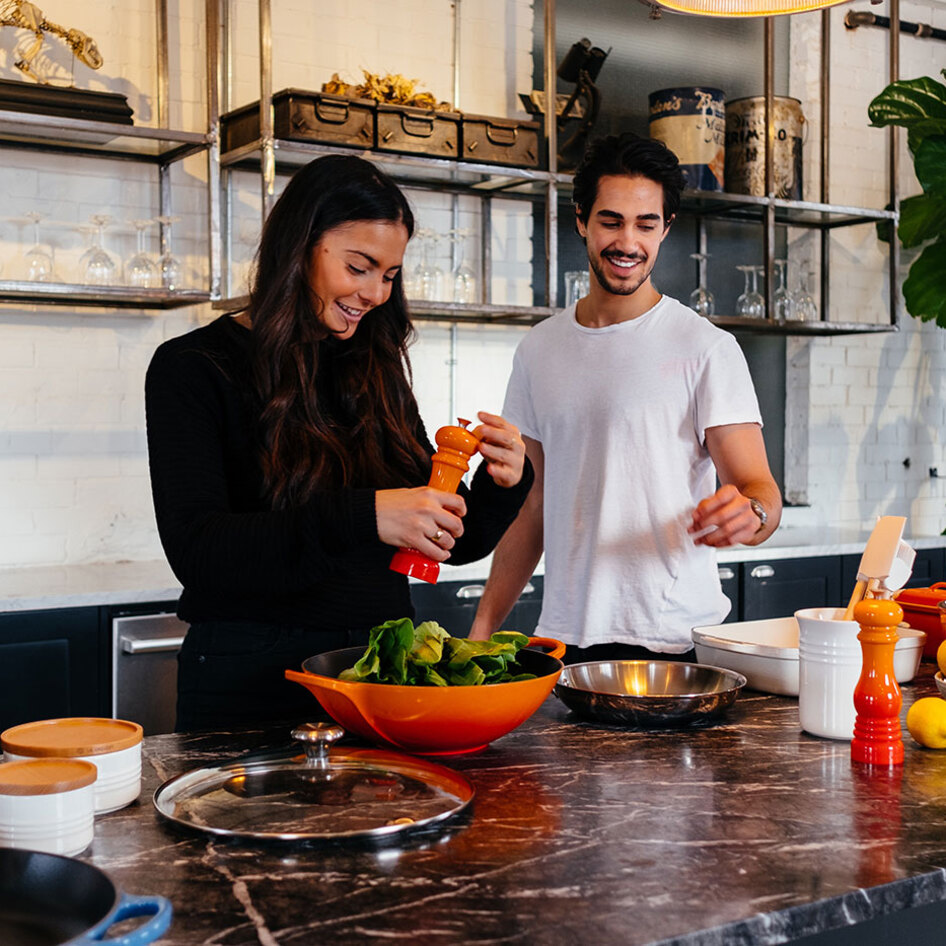Most of us have been in situations where the vegan options are limited. It could be, say, at a loved one’s house, on vacation, or at a restaurant with friends. The strictest vegans among us would choose to only eat the very small selection of suitable food available—even if it’s just fries or a bit of lettuce. Others might choose to compromise a little bit, and perhaps eat vegetarian. But there’s another lifestyle choice that’s rising in popularity: the social omnivore.
As the name implies, social omnivores eat meat and other animal products socially and when they’re at home, they follow a plant-based diet. But is this flexible approach good or bad? Here, we take a closer look at what a social omnivore is and the impact of this lifestyle. But we also consider: when it comes to food, is the situation really black and white? And are individual choices as important as systemic change and innovation?
What is a social omnivore?
A social omnivore is basically a flexitarian but with clearer boundaries. When it comes to the latter, many people say they will eat animal products every now and again, but with no clear rules about when or why. This approach to diet is rising in popularity; in April 2022, Beneo GmbH research suggested that one in four people around the world identify as flexitarian. Of the more than 12,000 consumers evaluated for the research, some may have been social omnivores, but this level of detail wasn’t gathered.
 Unsplash
Unsplash
According to a 2023 article by Bon Appétit, there are a few reasons why people might feel becoming a social omnivore is the best fit for them. For example, they enjoy a certain home-cooked meal that features meat, because of the memories and feeling of nostalgia it brings.
For some, it’s because they enjoy traveling and want to sample the local cuisine, whether it’s vegan or not. And for others, it’s about politeness. If they visit a friend’s house for dinner, they don’t want to inconvenience them by asking them to cook two different meals.
Are there any benefits to being a social omnivore?
Let’s be clear, reducing consumption of any amount of animal products has benefits.
According to one study published in 2019, if every American cut their meat consumption by 25 percent, greenhouse gasses would drop by one percent. It doesn’t sound like a huge amount, but it’s important to remember that any reduction in emissions is positive. Plus, limiting processed and red meat consumption can also seriously benefit heart health, and potentially reduce the risk of certain cancers and type 2 diabetes.

Being a flexitarian or social omnivore can also benefit the animals too. Counting Animals notes that if one person doesn’t eat meat for one day every week, this could potentially save the lives of more than three animals. Again, it doesn’t sound like a lot at first. But if everyone in the US was a social omnivore, and they ate meat, say, twice a week, that becomes more than 15 animals per person.
Is strict veganism better than being flexible?
Many believe that eating vegan is the best way to limit our impact on our health, the earth, and the animals, and plenty of research supports this view.
For one, if everyone went vegan, we wouldn’t need to kill any animals at all. We would also stop all of the greenhouse gasses from animal agriculture (which is responsible for 14.5 percent of the world’s emissions), limit deforestation (which is driven by the cattle industry), and it would hugely benefit our health. A multitude of studies suggests that following a whole-food, plant-based diet is one of the healthiest ways to live.
 Pexels
Pexels
But, it’s important to consider that, for many, becoming a flexitarian or social omnivore is a step in their journey towards becoming vegan. After all, most people who follow a plant-based diet now didn’t switch overnight, it was a gradual change. But even if a social omnivore never goes 100 percent vegan, as discussed above, this lifestyle still comes with significant benefits.
Even the most prominent of vegan thinkers, like philosopher Peter Singer, believe that an all-or-nothing approach to diet isn’t helpful for everybody. In the past, Singer has spoken about the “Paris Exception,” for example. It means that he will eat vegan food where possible, but if only vegetarian options are on offer (as is the case in many restaurants in Paris) he will eat those instead.
“When I’m shopping for myself, it will be vegan. But when I’m traveling and it’s hard to get vegan food in some places or whatever, I’ll be vegetarian,” Singer told Satya in 2006. In this case, he’s not a social omnivore, but a social vegetarian.
Real change needs to come from the food industry
But whether you’re a flexible vegan, strict vegan, or social omnivore, individual change is only one part of transforming the food industry. The truth is, moving away from destructive meat and dairy industry practices needs the support of governments and food companies.
And the good news is that the needle does appear to be moving. At the end of 2022, for example, Germany released a paper acknowledging that the country’s meat consumption was far too high and laid out several goals for change, including embracing seasonal, local, plant-based produce.
 Getty
Getty
“The transformation of the entire food system towards a plant-based diet is the most important adjusting screw in the nutrition sector to achieve our national and international climate, biodiversity, and sustainability goals,” the paper notes.
Germany isn’t alone. In the US, several states have endorsed plant-based initiatives. In New York City, public schools have Plant-Powered Fridays, and in California, the state is supporting plant-based school meals with a $700 million investment. In Denmark, the government has invested millions of dollars in its plant-based food sector, and in 2021, Amsterdam City Council revealed plans to persuade its people to go 50 percent plant-based by 2050.
And as food-tech gains more support and funding, and the range of convincing, plant-based meat on the shelves grows consistently, there’s a very good chance that in the future, it will matter less about personal dietary choices. Your mum’s favorite lasagna recipe could be made with meat that has been 3D-printed from plants or cultivated from cells in a lab. We can have the same taste and nostalgia, but with the help of innovation, so that our favorite meals don’t cost us, the earth, or the animals.
For more on popular diets, read:
JUMP TO ... Latest News | Recipes | Guides | Health | Subscribe









